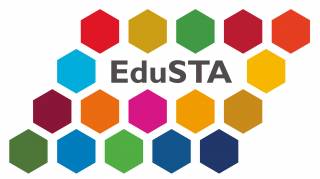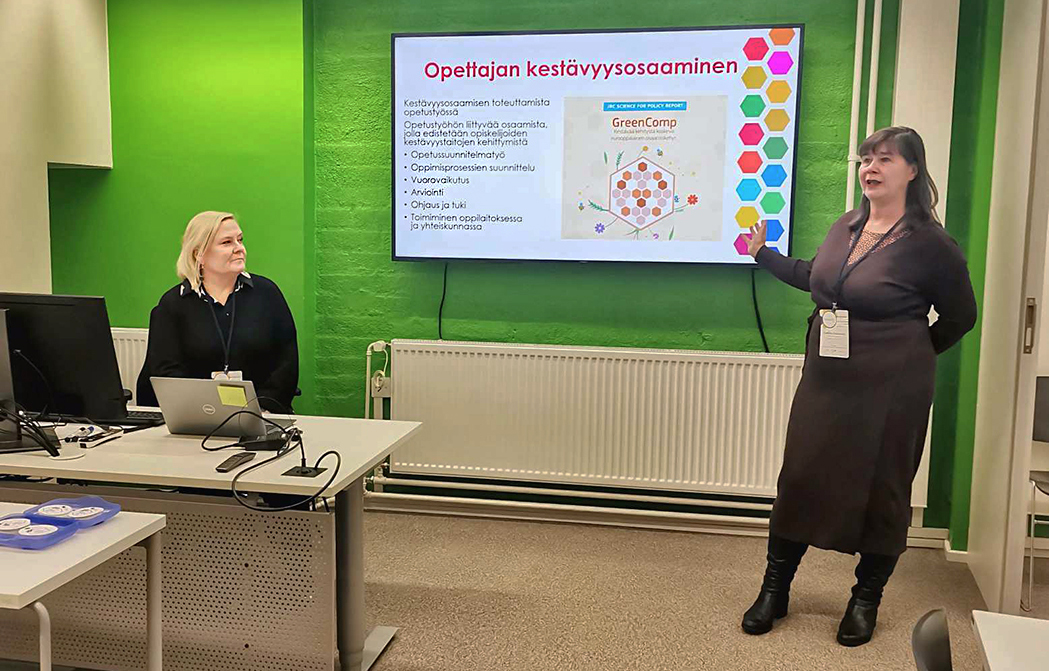EduSTA project manager Eveliina Asikainen and open badge specialist of the project, Dr Sanna Ruhalahti, presented the digital learning badges of EduSTA. In their seminar presentation, they also explained the pedagogical principles of transformative learning on which the competence based digital open badges for teacher’s sustainable competences are built on.
Asikainen and Ruhalahti also shed light to the questions, both practical and philosophical, solved by the project team while creating the open digital badges. They highlighted the demanding task of how to build the demonstrations of competences compact enough to be assessed, but still meaningful to teachers. In creating the content of the badges, the project team also sought balance between sustainability competences as skills and sustainability competences as new, a more profound way of thinking and acting in the world.
EduSTA digital open badges are in their piloting phase, and the seminar audience asked about the possibilities of participating in the pilots. However, teachers at Tampere University of Applied Sciences and Tampere Vocational College Tredu, as well as teacher students from Tampere College of Vocational Teacher Education will be able to test the constellation of digital open badges in early spring of 2024.
The development of digital open badges in the EduSTA project takes place iteratively, so after the piloting phase, the badges and how they function in practice, will be evaluated and necessary improvements are made. Even if you don’t make it to the piloting phase, the ready-made badges are open to everyone.
Text and photo: Liisa Marttila
The Academy for Sustainable Future Educators (EduSTA) is an Erasmus+-funded, international project to define practical sustainability competences specifically for vocational teachers. The project will design, build, and pilot a system of digital open badges and supporting competency-based learning, learning environments, and learning materials. The project is led by Tampere University of Applied Sciences (TAMK) and partners are Universidad de Girona, Spain, Göteborgs Universitet, Sweden, Hanze UAS, the Netherlands and University of Life Sciences, Prague, Czech Republic.


